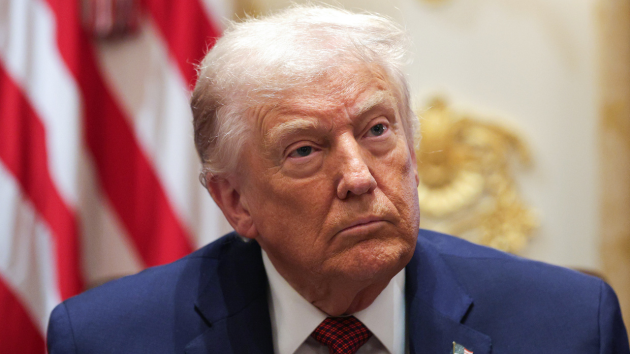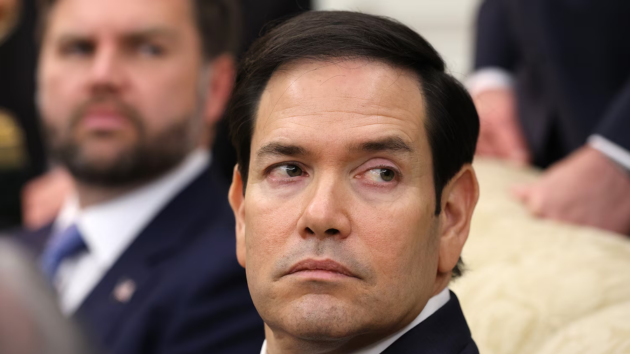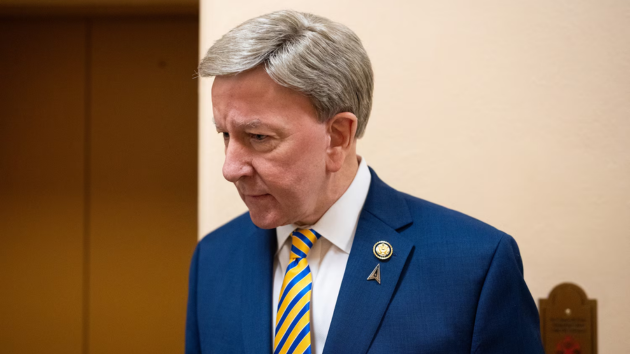Five things to watch in the first 2024 general election debate
Written by ABC Audio ALL RIGHTS RESERVED on June 26, 2024
(WASHINGTON) — President Joe Biden and former President Donald Trump will face off in-person Thursday for the first of two presidential debates this year, offering the two a high-profile opportunity to try to gain an edge in a race characterized by persistently narrow polling margins.
The debate, moderated by CNN, is occurring unusually early in the election cycle and features the atypical combination of a president and a former president both having to defend their White House records. They will also be clashing under unique circumstances — CNN will have the ability to mute candidates’ microphones when they’re not talking, and there will be no studio audience.
Debates in the past have produced signature moments that helped alter the course of the presidential race, while others have failed to make a dent. Biden and Trump both come into the debate with widespread worries over the fitness for office and character, as well as universal name recognition — and thus hardened voter opinions — that leave few opportunities for fluctuations in the White House contest.
Here are five things to watch Thursday:
Do any gaffes or knockout punches break through?
Traditionally, most parts of debates are forgotten by the time voters head to the polls in November. But marquee moments have the potential to break through.
Gaffes — think Rick Perry’s “oops” moment in a 2011 GOP primary debate — or knockout punches — think Ronald Reagan citing his opponent’s “youth and inexperience” in 1984 — have been able to pierce the national consciousness and live on throughout history, even beyond the years in which those elections took place.
Radars for such moments will be particularly high in Thursday’s debate, as worries over the two candidates’ fitness for office are staples in the race.
Biden, the country’s oldest president ever at 81 years old, is the target of ceaseless attacks over his mental acuity from Trump and his allies, who at times disseminate misleadingly edited videos to appear as if he’s lost during public appearances.
Trump, meanwhile, has made a series of flubs on the trail, including confusing or forgetting people’s names, though polls show worries over his mental fitness for office aren’t as widespread over concerns about Biden.
Strategists said a bad gaffe could damage either campaigns’ chances of victory in November, but that a strong performance, especially for Biden, could help mitigate worries over his age.
Biden “can’t stumble around words. He can’t drift off into these incoherent little tangents that he occasionally does because all he has to do is screw up once, and that’s going to be the thing that lives,” said veteran GOP strategist David Kochel. “I just think there’s a huge opportunity for him to put a lot of things to rest. But it’s also a minefield.”
Character or policy?
Both candidates have ping ponged back and forth between hitting each other on character and policy, still searching for the playbook that’ll put their opponent away.
Biden has repeatedly cast Trump as a threat to democracy, citing his role in inciting the Jan. 6, 2021, riot on Capitol Hill and his vow to be a “dictator” on his first day in office — a comment Trump’s allies say was made in jest. He also more recently began highlighting Trump’s recent conviction on 34 felony counts in New York.
He’s also sought to knock the former president on abortion, a key animating policy issue for Democrats, COVID-era economic slumps and for helping dash a bipartisan immigration bill in Congress earlier this year.
Trump, meanwhile, has focused on the president’s age and dubbed him the head of the “Biden crime family,” citing both unfounded allegations of corruption and the president’s son’s recent conviction on gun charges.
Trump also has spoken to voter frustrations over inflation and the border.
“If he says the word reproductive rights or abortion less than 100 times over the course of the 90 minutes, he’s probably failing. But I expect he’ll raise that in almost every answer. If they ask him about tax policy, he’s going to talk about abortion,” GOP strategist Alex Conant said of Biden. “I think beyond that, he’s going to want to remind people about Jan. 6.”
“Trump’s obviously gonna try to talk about inflation as much as possible,” he added.
Whichever tact the candidates take — an emphasis on character or policy — could indicate where they think their opponents are most vulnerable.
Offense vs. defense
The unique nature of a president clashing with his predecessor also leaves it unclear who will be able to seize the offensive.
Traditionally during a presidential reelection campaign, debates are characterized by the president defending his record in the White House, while a challenger is on the offensive while also defending a record in the Senate or governor’s mansion — less impactful and relatable to everyday voters.
Now, though, both candidates will have White House records to back up, leaving it unclear whether either will be able to seize the offensive — and if one or the other will end up stuck on their back foot for the 90-minute tete-a-tete.
Already, millions of dollars have been dumped into ads tearing into the candidates’ respective records — but being seen as a superior attacker on stage could pay dividends for either contender.
Early timing
Thursday’s debate is happening atypically early for a general presidential election, the impacts of which are unclear.
On the one hand, strategists speculated, the timing of the debate has a chance to set the tone for the race in voters’ minds before they truly start tuning in.
“I think it makes the debate more important, because it’s it’ll set the tone for the rest of the campaign. For Biden, who is desperate to make this a choice, not a referendum, it frames the race early on in a way that his campaign wants to frame it. And I think Trump is looking for a knockout punch,” Conant said.
However, the debate will be taking place months before Labor Day, the unofficial day highlighted by politicos as the earliest that most voters start paying attention to the race in earnest. And five months is a political lifetime, meaning the debate could be flushed from voters’ minds by ever-changing news cycles.
“It’s hard to see how there is a big shift or a big thing in this race where there’s also a lot of fairway left to play,” Republican pollster Robert Blizzard said.
Who does the novel format help?
The new format for the debate — which both campaigns agreed to — marks a significant departure from past clashes.
Recently dominated by crosstalk and crowd appeals, this Thursday’s event will in theory be tamer. Microphones will be turned off when candidates are not answering questions, and no audience will be present to cheer or jeer.
The conventional wisdom among operatives in both parties is that the new rules favor Biden by robbing Trump of the ability to feed off an audience or devolve the event into inaudible crosstalk.
“[Trump] is the king, undisputed, undefeated king of crosstalk at a debate. Rewrote the rules basically about it. But he also likes to feed off of a crowd. And so, you take away the feeding off the crowd, you don’t know how President Trump’s going to react to not having that instant feedback from a crowd,” said Chip Saltsman, a strategist who worked on former Vice President Mike Pence’s now-suspended presidential campaign.
However, Republicans also said they hope that limiting crosstalk could make Trump appear less like a bully — at least to the audience at home. There’s still nothing to stop the former president from at least talking during Biden’s answers.
Copyright © 2024, ABC Audio. All rights reserved.







